More and more I am hearing about the importance of self-love. It’s everywhere. Whether it’s a 30-day self-love challenge, 10 steps to loving yourself or another person marrying herself on Facebook, I’m over it.
You’ve probably heard it too, and like many, you may subscribe to these ideas:
“Love yourself first, and then you’ll get the man.”
“You don’t need anyone, you just need to love yourself.”
“Happiness comes from within.”
We have gone too far with this.
They do not use solitary confinement as one of the worst forms of punishment because someone can find happiness alone.
We simply weren’t made that way as humans. We are interdependent as a species and we need each other. Our brains and bodies are regulated by each other and we can only thrive in relationships with each other.
Let me be clear: I’m not saying we shouldn’t love ourselves.
I may be over these ideas about self-love, but I agree, it’s a beautiful thing!
I actually happen to love myself, but if I never had anyone in my life who loved me, I wouldn’t be able to. Because I’m human.
No 30-day self-love challenge would help me love myself if I lived in a vacuum and was never loved by another.
The point I’m making is that self-love is not the starting point, but it is the result of being loved.
We need to start where love starts: In relationships.
Psychic healing never occurs in a vacuum. It occurs in relation to another – usually a human, but sometimes another mammal will do.
Many people who teach and reach self-love may take for granted the relationships that have helped them achieve it for themselves in the first place.
A quote from Dr. Sue Johnson’s latest book, Love Sense: The Revolutionary New Science of Romantic Relationships, debunks this myth that self-love comes first:
Equally amazing is what the new research reveals about the impact of emotion in our closest relationships. The message touted by popular media and therapists has been that we’re supposed to be in total control of our emotions before we turn to others. Love yourself first, and then another will love you. Our new knowledge stands that message on its head.
In Dr. Johnson’s words in a recent HuffPost Live interview on this notion of self-love: “the bottom line is that that’s not how people work.”
“You learn about who you are by looking in the eyes of people you love.”
The message that is being shared about how it has to start with self-love is simply off the mark. Biologically we are not wired to be alone. In Dr. Johnson’s words, “We cannot define ourselves inside our own skin.”
And when we continually try to do this, we fraction ourselves off from others, believe in the myth of co-dependency, witness scary rates of divorce, and suffer as a society from skyrocketing rates of depression and anxiety.
We disconnect, when what’s needed for ultimate health and wellness is integration and connection.
We learn to connect with others before we can connect to ourselves.
Dr. Johnson asks, “How does a baby know he is delightful?” The baby knows he is delightful because when he looks into his mother’s eyes, he sees delight.
Sadly, not all babies have that experience.
Until that baby sees LOVE in the reflection of the eyes into which he is staring, whether they are his mother’s, father’s, an aunt’s, a teacher’s, a coach’s, a mentor’s, a pastor’s, a rabbi’s, a lover’s or a therapist’s, there is no way to start a foundation of self-love.
So be open to fiercely loving others and letting love in yourself.
The myth of self-love is a dangerous thing.
Don’t assume your partner should always be able to provide his own solutions to his emotional problems, and withhold taking care of him or reassuring him by showing him how much you love him. He will only be stronger with heartier doses of your love.
Don’t be afraid of being “enmeshed” or “co-dependent” if you want to spend all of your time with your partner. He’s the person you chose to live the rest of your life with – why wouldn’t you want to be with him?
And don’t hesitate to go to your partner to ask for reassurance if you have a big or scary project coming up. You don’t need to go it alone; you weren’t built that way, and you’ll do much better with his support.
Let’s set things straight: Love starts within our relationships, not within ourselves.
So the next time you’re up to some endeavor in self-love, first remember who has loved you and who you have loved. The vivid images in your mind of those who have loved you will take you to your place of self-love much faster than whatever else you are being taught.
I’m curious to hear your thoughts…especially from the folks teaching self-love out there. Please leave your comments below!
Cheers to loving each other and ourselves,
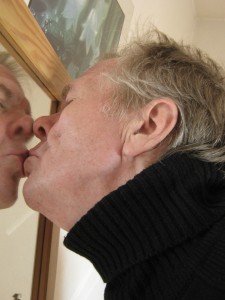

 Loading...
Loading...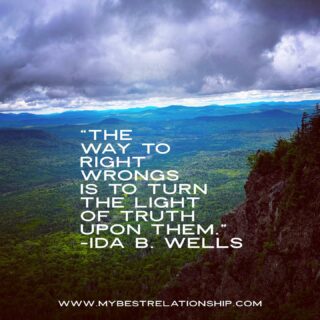
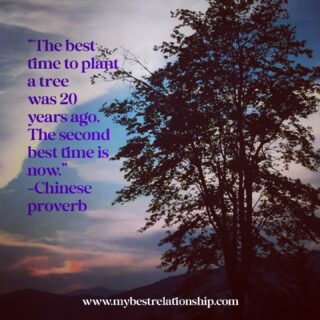
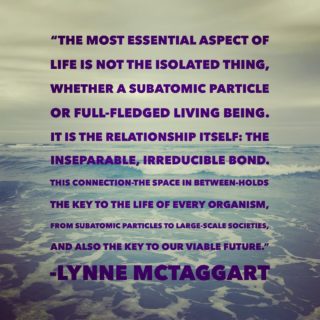
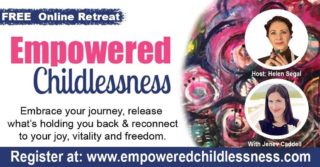

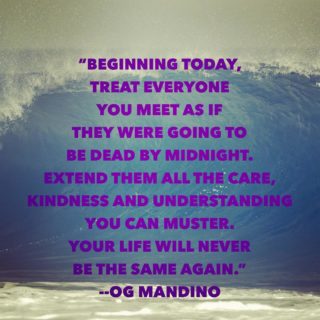
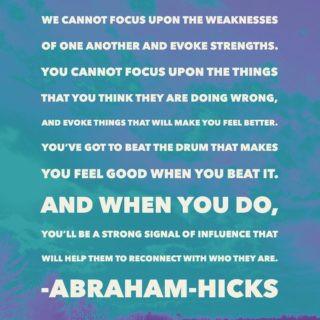

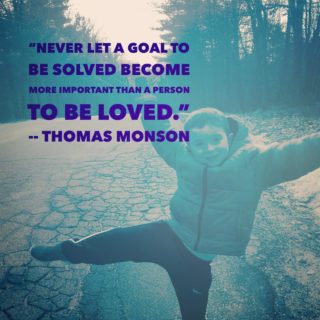


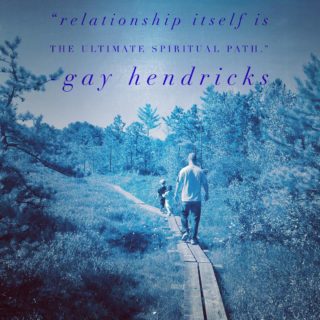

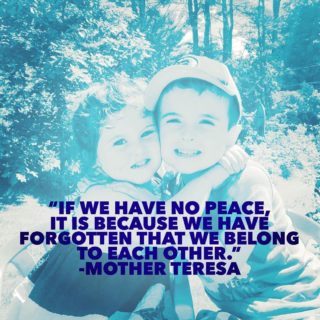
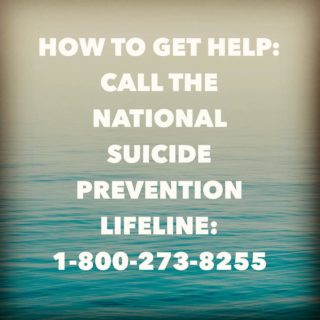
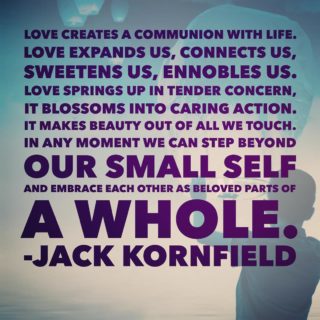
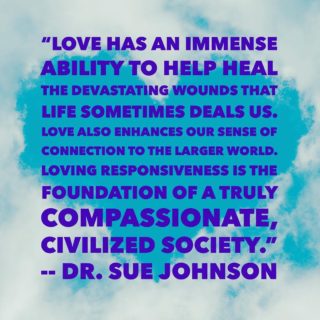
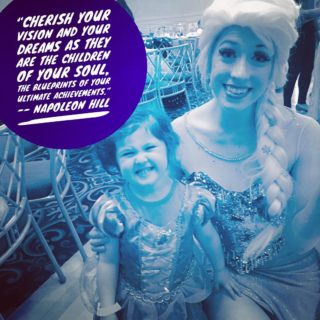
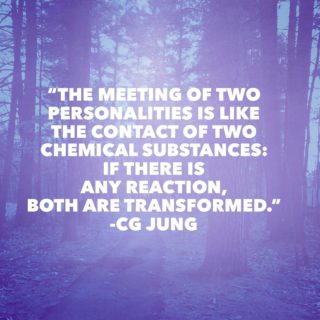
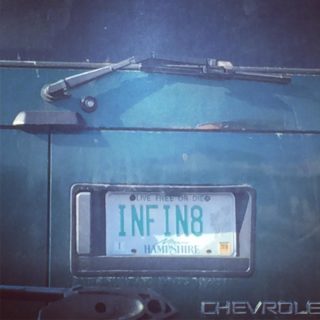
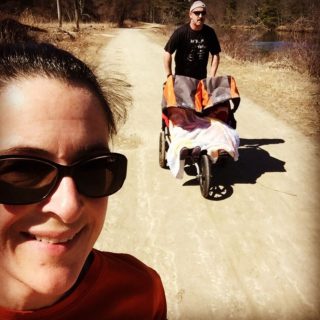
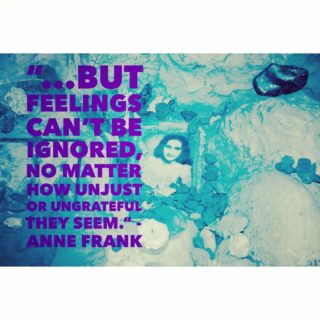
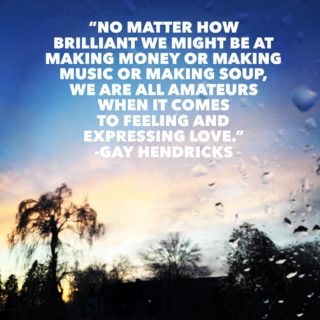

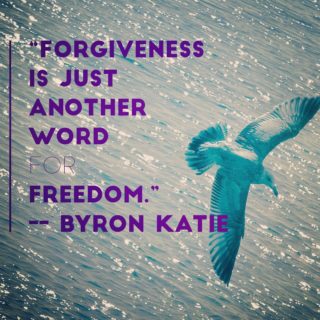



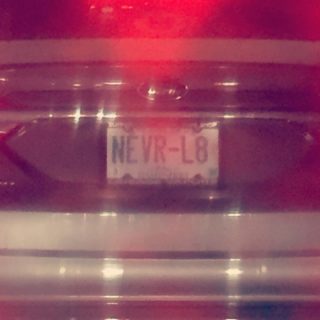
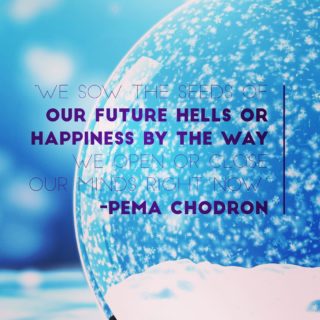

I SO love this Jenev!!!
I too have been giving this self love piece a lot of consideration lately – and I have to admit that whilst I do feel it’s important to love ourself – and connect with who we really are in a kind way – for me it’s more about self value and self respect. I remember a time when I didn’t value myself – and so I found myself in relationships which didn’t serve me; they loved me, but I just wasn’t truly happy.
I did learn to love and value myself more, and certainly worked on my self respect. Being in a relationship with this mutual love and respect, means that the love can grow and blossom without co-dependency, and it enriches our lives magically.
Thanks so much for your comment, Ali!
I love the consideration of self value and self respect in this conversation. They are so critical – and yet a work in progress for most of us! They aren’t necessarily black & white issues. Rather, to be in a relationship where the respect and value and love is always on an upward spiral (rather than in a downward) – in which, as you so beautifully pointed out, “love can grow and blossom” – well, that’s what it’s about, right? So great to hear your thoughts on this and thanks so much for chiming in!
Jenev
Lovin the self respect and self value for yourself but hate the word co/dependent.
It’s sounds like such negative word and I could see it being valid if your depending on someone
doing unhealthy things in the relationship i.e. (Two drug addicts)
This article was excellent!
Hi again, Henry —
I agree, I think we’ve gone too far with the word “co-dependent” too. In so many of Dr. Sue Johnson’s words (the psychologist who has played a huge part in the revolution of couple therapy in her development of Emotionally Focused Therapy which is the gold standard approach in counseling to helping couples out of distress and to connection): “there is no such thing as co-dependency, there is only effective and ineffective dependency.”
For sure I think Ali is referencing “ineffective dependency” but that’s more of an accurate description than the pathologized “co-dependency” word, yes? I wrote a post on that one too a few years ago, I would love to hear your thoughts:
https://mybestrelationship.com/the-myth-of-codependency/
Thanks again for your comments about the article, I’m really glad you enjoyed it.
All my best,
Jenev
Got it. Thanks!
Hopefully you seen my comment.
Oh my goodness! What an awesome article. Well done, Jenev 🙂
I completely agree – because the relationships with others came first in my story.
Besides the love of family, I attracted the man of my dreams because I was being me and radiated that from my heart – the result of making my personal happiness a priority helped me find that confidence.
But I quickly lost my own self-love when the relationship began to get more comfortable and I battled immense insecurities that I thought I had conquered. Those were pesky and caused a lot of silly problems in the relationship.
That was when I took a long, hard look at my self-love situation. And that was when the healing began. Putting the pieces back together.
It seems like when I fell head-over-heels in love with my man, I completely lost my sense of self. I was in such a blank slate of just gushy love. Haha. It was like “all you need is love” was the theme song of my life. And we only needed each other. Until I woke up one day not knowing who I was anymore and my man not satisfing my empty “self-love spot.”
So, there’s definitely a need for both. And long story short, I’m still with that man and we are happily together for over 6 years and my journey of recovering my sense of self has been fun and actually made the relationship much more meaningful.
Thanks for reading!
xoxo.
Melissa,
Thanks so much for your comment! I so agree that we need to know and love ourselves, and only then can we be in truly fulfilling relationships. But, self-love never exists in a vacuum. I’m so glad to hear you’ve found your way back to yourself and that your relationship has only deepened as a result. Thank you for your comment, I really appreciate it!!
Jenev
I LOOOOOVE this Jenev! A refreshing, empowering take on love that I needed to read right now. :). Thank you!!!!
Thank you, Holly!
The clarity in this article was spot on! Excellent job!
Reading articles about ‘self love’ never made me feel good much less right. So many times I walked away feeling like… huh?
Something felt missing.
(I thought to myself if your ‘that’ strong where is there room to be vulnerable and little weak at times? Besides to be vulnerable is attractive!)
Absolutely, it seems healthy to need and depend on others at times and not go at it alone.
Even if you “could” be that strong would you really want to?
I’ve been in love with my wife for over 20 years and nothing on earth could compare to the times Ive had with her. I LOVE to appreciate her and acknowledge her beauty everyday. I like my time alone to refresh here and there but I truly miss her when she’s away for too long!
My life would just wouldn’t be same without her no matter how much I “loved myself”
Hi Henry,
Thank you so much for your comment and sharing your experience. It means a lot to me that you took the time out to write here.
I’m all about self-love as an ingredient, but I think it becomes a protective strategy for so many, and is touted as the beginning or the end of the journey, when it’s just part of the story. Yes, important, but not the be all end all as perhaps many of the things you’ve read suggested (as I’ve seen, too).
The Beatles were right, leaving the word “self” out of the song 😉 I’m glad you agree!
Thanks again for commenting here!
Jenev
One last thing I wanted to add is I really liked how you specifically emphasized solitary confinement and the fact that advice given on this could even be dangerous.
Worst thing I ever read, was *before* you can be loved you have to love yourself. Yet the definition given from those sources of self love can be vague all by itself, and leave alot to the imagination.
Oops cut short. I do have one question about self love in regards to relationships.
Seems the way self-love is being said to be is you should be able to completely “depend on yourself”, “have it all together,” etc. (before) ever entering into a relationship. To not need relationships. You can do with or without a person.
Now, I can appreciate enjoying your own company here and there, and I can appreciate not needing to be in a relationship if your not in a good one, or just came out of a bad one, or in obvious situations where you would be best off being on your own for awhile.
But for me I always thought you should avoid a relationship if you were the overly selfish type and or had no idea how to handle responsibility.
Nothing ever about first being so emotionally independent (and content) to the level similiar of a Buddhist monk or a closed off loner.
So… my question is why do you believe the self love thing puts such an emphasis on one should be “that” independent? It’s almost as if you shouldn’t need a person whatsoever. Like they are some kind of dessert.
I love that, Henry — “like they are some kind of dessert.”
I will mention 2 reasons I believe the “self love thing” we’re talking about puts the emphasis on self-sufficiency/not-needing-someone/”independence,” etc…
There may be more- and this is just my opinion.
1.) Culturally/Contextually/Historically — I’m writing from a western / “individualist” culture (U.S.A.) which celebrates holidays like “Independence Day,” etc. I won’t get into too much historical/philosophical discussion here but there’s been predominant Cartesian duality objectivist kind of thinking in the last few hundred years that I believe has thought of us as separate, etc.
I believe (hope) we are moving toward a more connected model/understanding of how we really are, which is how I believe we really are 🙂
2.) I think for many who have been hurt/burned/traumatized in love (or in significant relationships with important others, not necessarily romantic love) it feels a lot safer to feel okay on their own.
And … self-love is 100% important here. It’s a good thing if “love” has historically been abusive — definitely love yourself before you love someone who hurts you, right?
So in this context I believe self-love is extremely important, but by no means is it the end of the road.
What do you think, Henry?
Thank you for your insight.
In the context of abuse sure. Yes love/respect yourself not to tolerate it from another.
But I think it mainly stems from most being burned by relationships/ method of protection.
It’s tricky because maybe in a sense we shouldn’t necessarily need a relationship.
But after we are in (a good one) we DO have a “need” for them, and wonder how we lived without them, and yes.. I’ll say it… we’d be lost without them. ?
Yes, Henry – I agree! More good news that encourages us also to create our strongest relationships is that even in the case of loss — the strength/security of the relationship is correlated with a better recovery/grieving process. We are more able to hold these people in our hearts and carry them with us forward, even if they are not physically present. I find that comforting too 🙂
Hello here is one I found interesting. Do you agree with this? It is self-love article which states that love gets passed for two people meeting eachothers needs. So I was curious about your own observation. Thanks!
https://tinybuddha.com/blog/why-loving-yourself-means-never-saying-you-complete-me/
Hi Bella — I agree with this mostly — I would say if you are desperate for someone else to “complete” you as this writer indicated he used to do, this is “ineffective dependency” – but at the end of the day we have to remember we are wired for connection so it is important to take care of our relationships with others, not just with ourselves.
Growing up self respect and taking care of yourself went without saying. Never knew why its became such a big deal. It was healthy to have basic needs of affection. Maybe I am nieve but does self love mean we should not need affection, love, reassurance, and so forth, from others, that we should somehow get that from ourselves? For instance, if you are in a relationship and your partner who’s emotionally disconnected and isn’t affectionate, is there something wrong with wanting to be closer with them?
I think different people have different definitions of ‘self-love’ – but I believe we are in dangerous territory if it ever implies that we do not need affection/love from others, because we need love like oxygen. I believe self-love is a wonderful thing, but it’s not all we need. I’m for both/and. I don’t think there is anything wrong with wanting to be closer to an emotionally distant partner.
but in terms of the article it’s noted everywhere that any kind of emotional need from another is filling a void that you need to somehow fill yourself. Love yourself. This is the message Im getting. Ive also read on this topic and the message seems to be the same. Do not need affection, words of affection, don’t seek validation in your partner. You give that to yourself, blah. even if you did feel that way about yourself isn’t it nice to have your partner tell you your important?
…. “This then leads to the false assumption that we need to be given love by other people in order to feel whole. In fact, the reverse is true. When we feel whole, we are able to love other people, and that is how we connect”
Hi Bella,
Sorry I missed your comments in reply to mine, I am just seeing them now for some reason.
The reason I wrote this post wasn’t to say anything negative about self-love, but to debunk the notion that is often attached to the self-love hype which is what you mention above – that “any kind of emotional need from another is filling a void that you somehow need to fill yourself.” THAT kind of thinking is what the post was in response to (because I disagree with it and so does science) — we are wired for connection and DO have emotional needs that get met by others, which are often denied. Once we can accept and understand that about ourselves as social mammals (that we do have these needs), we can begin to more effectively ask for them to be fulfilled, and receive that from each other.
Yes, self-love is important, but our thinking has gotten way too individualistic and now everything we are learning suggests we are more “we” than “me.”
Hope that clarifies my thinking?
Thanks for your thoughtful comments,
Jenev
Hi Jenev,
I was referring to the initial article that I posted as an example. The overall tone – speaks of “me” instead of “we” as you put. Sorry if I wasn’t clear. I 100% agree with everything you said. What tripped me up was seeking validation in another. Couldn’t you say that seeking validation is a form of filling an emotional need? I understand that we all should accept ourselves but that’s tricky too. Not everyone does at least completely. I think we do our best. Sometimes it takes another to see right through us and loves us despite our flaws, insecurities, the fact that we are not always confident.
Most all relationships Ive ever seen the other constantly “reassures”, and “reaffirms” the love they have for another. It’s like watering and nurturing a seed on a daily basis.
To be clear. The focus is not on themselves its on the other. In fact, the best relationships Ive seen think very little of themselves, make compromises and sacrifices for the other. There is a great need and concern there for the other.